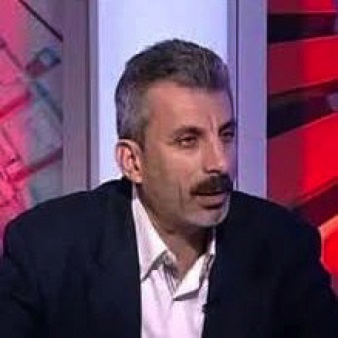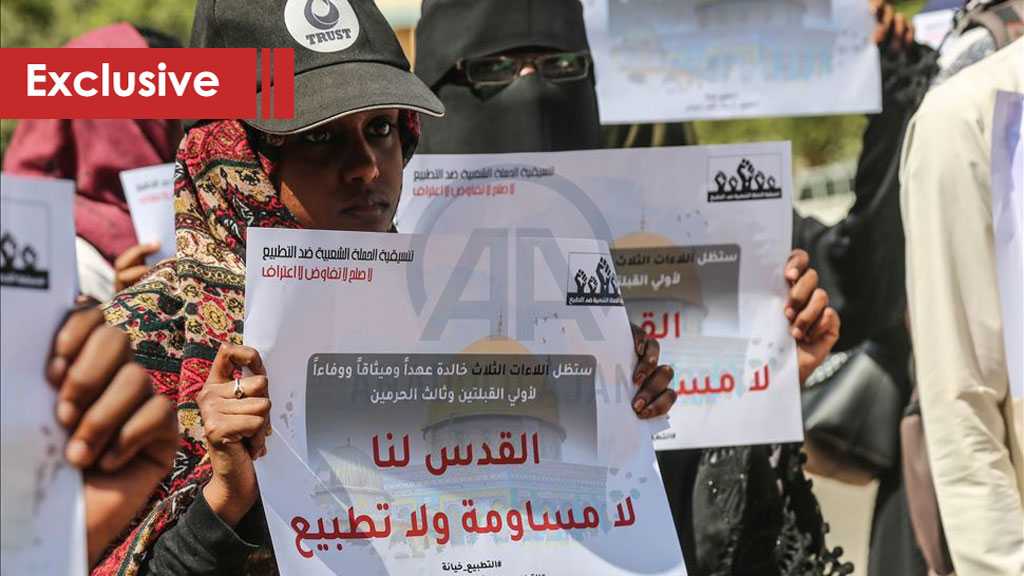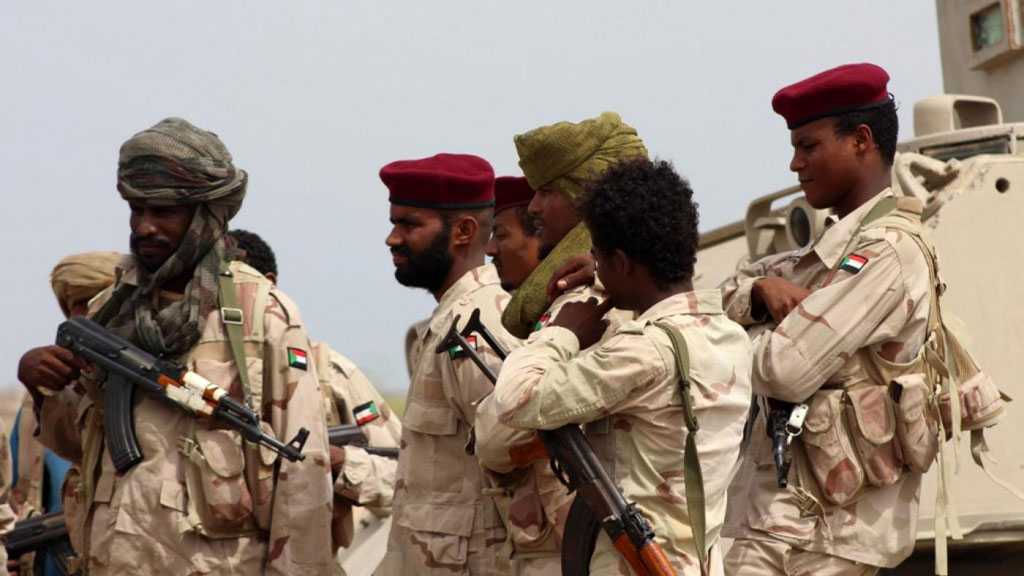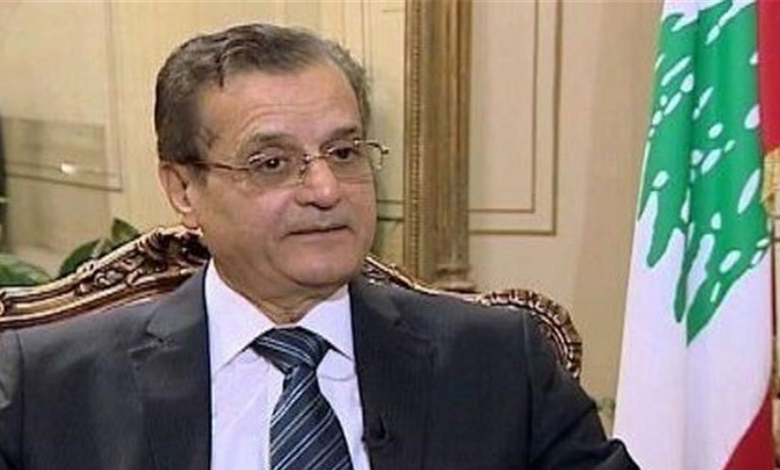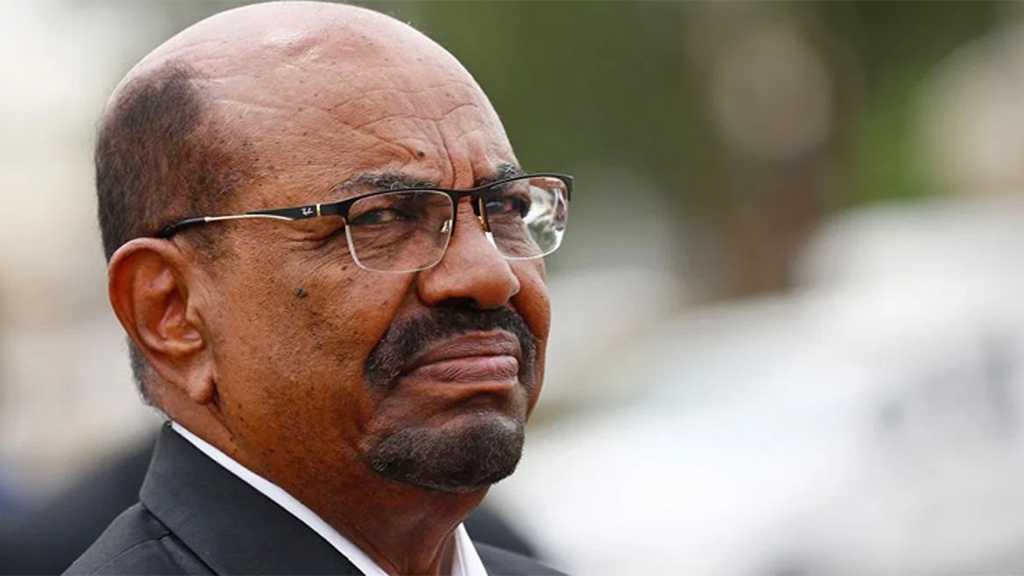Apr 28 2023
By Ahmad Karakira
The Israeli occupation has several reasons to rush to mediate a ceasefire between the Sudanese army and the Rapid Support forces, the most important of which is establishing its presence in yet another African country bordering the strategic Red Sea.
A few days ago, three Israeli occupation Foreign Ministry officials told Axios that “Israel” has offered to host both parties involved in the conflict in Sudan in an effort to reach a cease-fire agreement.
The proposal was handed to Army Chief General Abdel Fattah Al-Burhan and Rapid Support Forces (RSF) head General Mohamed Hamdan Dagalo, known as Hemedti, as Israeli occupation Foreign Minister Eli Cohen and director general of the Israeli occupation’s Foreign Ministry Ronen Levy remained in direct contact with both Sudanese generals.
According to Cohen and Levy, both Sudanese generals gave the impression that they were considering the proposal in a positive light, adding that US President Joe Biden’s administration was consulted and informed.
“Since the fighting started in Sudan, Israel has been working in different channels in order to reach a ceasefire. The progress we have made with the two parties is very encouraging. If there will be a way that Israel could help in stopping the war and the violence in Sudan we will be very happy to do it,” Cohen told Axios in a statement.
Read more: No end to war until Al-Burhan surrenders: RSF advisor to Al Mayadeen
Normalization with ‘Israel’ jeopardized by Sudan fighting: Axios
Another report by Axios revealed that the Israeli occupation fears that the ongoing clashes will hinder the formation of a prospected Israeli-allied civilian government, which would jeopardize the normalization agreement between Sudan and the Israeli occupation.
According to the report, “Israel” has built strong relationships with both Al-Burhan and Dagalo. Before clashes ensued, Israeli officials said they were actively following up on the process of appointing a civilian-led government in Sudan.
During his visit to Khartoum in February, Cohen urged Al-Burhan to proceed with restoring civilian rule, emphasizing that it will be challenging to secure a peace agreement without it, Axios mentioned.
The news website cited Israeli sources as saying that the Israeli occupation Foreign Ministry has been in contact with Al-Burhan over the normalization process, while Dagalo and Mossad have met and discussed “security” and “counterterrorism issues”.
Israeli officials were certain of an agreement to appoint a civilian government in the upcoming days, Axios indicated. However, what transpired was fierce fighting that spread over multiple cities in the country.
The White House has also pushed Israelis to mediate a ceasefire deal between the fighting generals, the report revealed.
But why is “Israel” in a rush to complete the normalization process with Sudan?
Flashback
It all started in 2016 when the Israeli occupation urged the US to allow it to infiltrate into Sudan after the North African country severed diplomatic ties with the Islamic Republic of Iran. Following Saudi Arabia’s lead, Sudan cut diplomatic ties with Iran after the storming of the Saudi Arabian Embassy in Tehran and the consulate building in the city of Mashhad.
In August 2017, then-Sudanese Minister for Investment, Mubarak Fadel Al-Mahdi, spoke for the first time about normalization with the Israeli occupation during an interview with the Sudania24 TV station.
And when General Abdel Fattah Al-Burhan came to power after the resignation of Omar Al-Bashir, he met in February 2020 with Israeli occupation Prime Minister Benjamin Netanyahu in Uganda.
Consequently, Khartoum was removed from the US blacklist in December 2020 after 27 years of imposed sanctions.
In January 2021, Sudan formally agreed to normalize relations with “Israel” in a quid pro quo for the United States to remove it from its list of so-called “state sponsors of terrorism”, but ties were never formalized. In April of that year, the North African nation approved a bill abolishing a 1958 boycott of the Israeli occupation.
Finally, Sudan and “Israel” said in February that they agreed to move towards normalizing relations during the first official visit of Israeli occupation Foreign Minister Eli Cohen to Khartoum.
Sudan; a route to transfer arms to Palestinian Resistance
One of the several reasons that the Israeli occupation is racing against time to complete the normalization process with Sudan is to make sure that the North African country does not again become a route to transfer arms to the Palestinian Resistance in the Gaza Strip.
Before severing ties with Iran, Al-Bashir’s administration reportedly supported the Hamas movement politically and allowed it to open an office in Sudan. The Israeli occupation had previously accused Sudan of allowing the passage of arms from several countries to Gaza via its territory.
However, with the regime change in Egypt and the rise of General Abdel Fattah Al-Sisi as President, the latter ordered the destruction of tunnels between his country and Gaza, through which the Palestinian Resistance reportedly used to receive arms.
In March 2009, the Israeli occupation even targeted a 17-truck convoy in eastern Sudan that reportedly carried weapons to Gaza, and also targeted an arms factory in Khartoum in October 2012.
In March 2014, the Israeli occupation’s navy said it seized a ship loaded with weapons in the Red Sea between Sudan and Eritrea that was allegedly en route from Iran to Gaza.
To further dive into the reason for “Israel’s” eagerness to mediate a ceasefire in Sudan and consequently complete a peace agreement with the North African nation, one should tackle the history of relations between the two sides.
History of Sudanese-Israeli relations
In his book “Israel” And Relations With The Islamic World, Jihad Odeh said that “Israel’s” ties with Sudan began before the latter gained its independence from British occupation in 1956, when an Israeli trade mission comprising 50 people settled in Khartoum in 1951 to buy Sudanese products and goods and send them to “Israel” via Cape Town, South Africa, to avoid anti-smuggling measures taken by the Egyptian authorities in the Suez Port and Port Said.
The book mentioned that Israeli planes often landed at Khartoum airport to refuel and continue their flights, which prompted the Secretary-General of the Arab League at the time to send a memorandum to the British government in February 1951 to inquire about the matter.
Britain, which was ruling Sudan in partnership with Egypt, replied that Israeli planes had the right to use Khartoum Airport under the pretext that Britain and Sudan are not at war with “Israel.”
It was during the era of Abdullah Khalil’s government that the first Israeli intelligence envoy arrived in Sudan, with the consent of the Sudanese government, Odeh revealed in his book.
And as a result of contacts that began in 1954 between Sudanese politicians and “Israel”, a Sudanese figure accompanied by a Sudanese journalist met in a London hotel with a young diplomat working in the Israeli occupation’s embassy in Britain named Mordechai Gazit.
The author said that Sadiq Al-Mahdi, the head of the Umma Party, was in contact with Mossad in 1954, and met along with Mohammad Ahmad Omar, editor-in-Chief of the Nile Newspaper and spokesperson for the Umma Party, with Gazit.
According to Odeh, the goal of Sudan at that time was to seek the help of “Israel” to win Jewish public opinion in the West to obtain independence, while Gazit wanted to establish commercial relations Between Sudan and “Israel” to reduce the intensity of Arab isolation.
Contacts and meetings between Israeli and Sudanese politicians continued after the latter’s independence in 1956, when then-Israeli Prime Minister Golda Meir met with then-head of the Sudanese government Abdullah Khalil in the summer of 1957.
In those discussions between Meir and Khalil, it was agreed to send Israeli agricultural experts and civilian and military advisors to Sudan. It was also agreed that Sudan would allow EL AL planes to land and refuel on their way to South Africa, and that the Mossad would be allowed to build a station in the North African country.
Al Haya newspaper noted that the Mossad was able to establish its station again in Khartoum in 1983 during the era of then-Sudanese President Jaafar Nimeiry after the latter met with Menachem Begin’s Security Minister, Ariel Sharon.
Nimeiry revealed that he began his contacts with “Israel” in 1965 when he was an officer participating in a course on cooperation between Sudan and the US, where he established contacts with Israeli personalities who later visited Sudan in unannounced secret visits, Odeh mentioned in his book. However, when he took power in May 1969, Nimeiry followed Egypt’s footsteps against the Israeli occupation.
Nevertheless, Israeli ties with Nimeiry’s regime re-resurfaced after the Camp David Accords, which he supported, leading Mossad to rebuild its mission in Sudan.
Why Africa and Sudan?
In his book, The Israeli Foreign Policy Toward Africa: The Sudan Case, Amer Khalil Ahmed Amer pointed out that “Israel” has adopted an approach that relies on closer relations with countries surrounding Arab states, and this is evident in the strong relations with these countries at all levels, especially in the field of military and security cooperation, hidden under the cover of trade and economic relations.
In parallel with the expertise that the Israeli occupation provides to these countries, Amer continued, it has gained a foothold in military bases that oversee Arab countries, which represents a clear threat to Arab national security in general.
The occupation can threaten Arab water security and navigation in the Red Sea, due to the advanced position that it gained from establishing strong relations with Eritrea, the author pointed out.
Amer noted that the attempt to control the Red Sea is one of the most important strategic goals of “Israel” in the African continent, adding that the occupation began to establish a presence on the Red Sea in order to use it to achieve its military, economic, and political interests.
To achieve this goal, “Israel” strengthened its relations with Ethiopia in the late sixties and Eritrea after its independence from Ethiopia in 1991; it also built bases in Ethiopia after Moshe Dayan’s visit in 1965.
In addition to its military bases on the Eritrean islands, especially near Bab Al-Mandab, “Israel” built two military bases in Ethiopia near the border between Eritrea and Sudan.
According to Amer, this expansion in the Red Sea region gave “Israel” a strategic depth in Bab Al-Mandab to monitor any Arab military activity in the region.
It is noteworthy that “Israel” has military and intelligence bases for espionage and monitoring on a number of Eritrean islands, including Dahlak, Haleb, and Marsa Fatma, which are located at the southern entrance to the Red Sea, in addition to Zubair Island, which is only 22 km from Yemen, and houses a communications network and radar equipment.
The Israeli presence on these islands also includes special forces, paratrooper units, and airborne forces equipped with modern helicopters and Dolphin-class submarines. Through these bases, “Israel” threatens Yemen’s national security, where it can monitor it and spy on it smoothly, Amer argued.
During his visit to “Israel” in 1996, then-Eritrean President Isaias Afwerki signed an agreement to enhance security and military cooperation that included, in one of its clauses, an Israeli pledge to support Eritrea to confront any attempts by any force to control its strategic islands located at the southern entrance to the Red Sea, and to allow a limited military presence in these islands.
Sudan; a power to the Arab world
According to Amer, Israeli estimates since the beginning of Sudan’s independence indicated that this country should not be allowed to become a force added to the power of the Arab world, because if invested in stable conditions, its resources will make it a threatening force.
During the 1967 War, Sudan became a base for training and sheltering the Egyptian Air Force and ground forces. It also sent its forces to the Canal region during the War of Attrition between 1968 and 1970, as well as during the 1973 October War.
It is noteworthy that following the 1967 Six Day War, Khartoum hosted the Arab League summit held from 29 August to 1 September 1967. There, Arab leaders declared the three no’s: “no peace with Israel, no recognition of Israel, no negotiations with Israel.”
Related Stories
- Sudan Turmoil
- Iran FM assures Hamas chief of support to Palestinian resistance
- Conference of resistance leaders at the Iranian embassy in Beirut
- Security situation worst since 1973 war: Former Israeli CGS
Filed under: "Israel", Sudan, The Islamic Republic of Iran | Tagged: Bab al - Mandab Strait, Benjamin Netanyahu, Golda Meir, Israeli MOSSAD, Jaafar Nimeiry, KSA, Normalization with Israel, Omar al-Bashir, Palestinian Resistance factions, Sudanese army, Sudanese Rapid Support forces, The Six-Day War, US blacklist, US President Joe Biden’s administration, Yemen’s Red Sea blockade | Comments Off on ‘Israel’ eager to mediate ceasefire in Sudan: What are the reasons?








